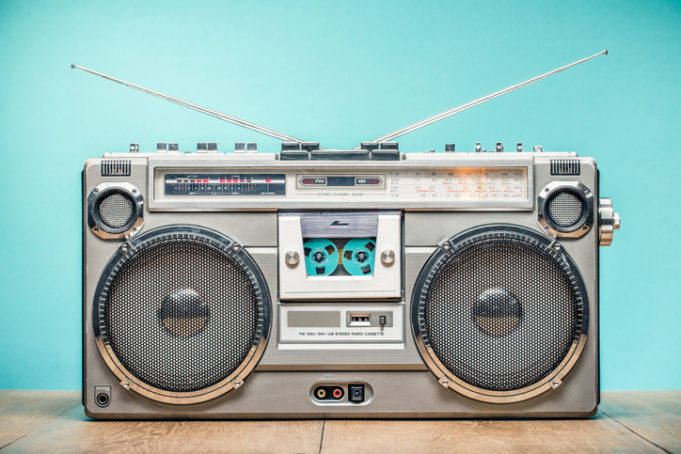Local indie rockers and hip-hoppers, I’m sorry to say, but you can forget about scoring airplay on any commercial radio station. What’s standing between you and the program directors at the big local stations is a swarm of gatekeepers or “promoters” paid by labels with mucho disposable income to push songs onto the air. And sometimes push them off. As far as we’ve come since Alan Freed first spun “Rocket 88,” we’re still trapped in an oligarchy wherein the haves and have-nots not only exist but exist in the same, general, unfair unbalance that we see in everyday life. Wonder why …
Does anyone listen to radio anymore? Yes. Especially online radio, whose reach has “increased sharply in the last decade,” according to the consumer data company Statista. In 2019, the most recent year for numbers, 67% of the U.S. population listened to online radio like Pandora and iHeartRadio, compared to 27% in 2009.
Does anyone listen to terrestrial radio anymore? Yep. According to the same research firm, 92% of us listen to AM/FM radio regularly, a number that’s higher than TV viewership (87%) and even smartphone use (81%).
You may not listen to terrestrial radio because you’re a city slicker, but lots of folks in poor areas rely on radio for not only nonstop Eagles songs but news. Which brings up question No. 3: Does anyone listen to terrestrial music radio anymore? Of course. Zillions. The same way we still pick up newspapers, we still listen to music over the AM/FM bands. Question 4: Do we listen to terrestrial music radio only while driving?
“No one listens to the radio unless in car,” according to that one radio promoter somewhat exposed in a Rolling Stone article from October. Steve Zap had texted a station to slow down spins for Ed Sheeran and Panic! at the Disco and put Shawn Mendes on “super power for #1.” The previous week, Sheeran’s “I Don’t Care” was No. 1 while Mendes’ “If I Can’t Have You” was 3. Not long after Zap implored the station to spin Mendes’ tune “every 15 min,” Mendes leapfrogged Sheeran to the No. 1 spot. The Rolling Stone article was followed by lots of handwringing and finger wagging. Nothing has changed. Welcome to the apex of late-stage capitalism.
Whatever you think of Zap, the guy has a point. Much in the way that landlines no longer exist, I doubt a lot of houses still have boomboxes, a phenomenon that I intend to address single-handedly by purchasing a gently used Panasonic Platinum “powaaah!” via eBay. Why? Because I hate using my laptop to stream KXT. I also miss All Things Considered. Not driving to and from work has at least one downside apparently.
Of all that handwringing and finger wagging, I can only make sense of a few points. One that generated only down marks on the Popheads subreddit is that quality trumps money. Bear with me a moment. The theory goes like this: Obviously, radio wouldn’t continue playing a crappy song no matter how much money you threw at it. Which is true only because most pop songs sound the same. A few years ago, the reason was discovered. The Millennial Whoop, as you no doubt remember because you read my column religiously, is the theory that so many pop songs sound the same because they use the same underlying sequence of chords. Though the keys, arrangements, and styles may be different, the progression is the same, which means that pretty much the only reason Maroon 5 continues receiving airplay and your local band does not — even though the quality of your songs are the same — is that, well, Maroon 5 is Maroon 5, and you’re a local without connections. Or money. But not without hope, I hope. #keepkeepingon
The most popular terrestrial radio music format by far is Country with 2,179 individual stations. Talk is second, followed by Adult Contemporary or pop. As of 2018, the Pew Research Center says, Americans averaged 106 minutes of radio listening time per day, mostly “while commuting.”
I guess Zap was right, though the only commuting I do now is from home to Kroger and back. Spin that Pandora all damn day long, though. #R.E.M.radio #Rushradio #PublicEnemy — Anthony Mariani
Contact HearSay at anthony@fwweekly.com.












